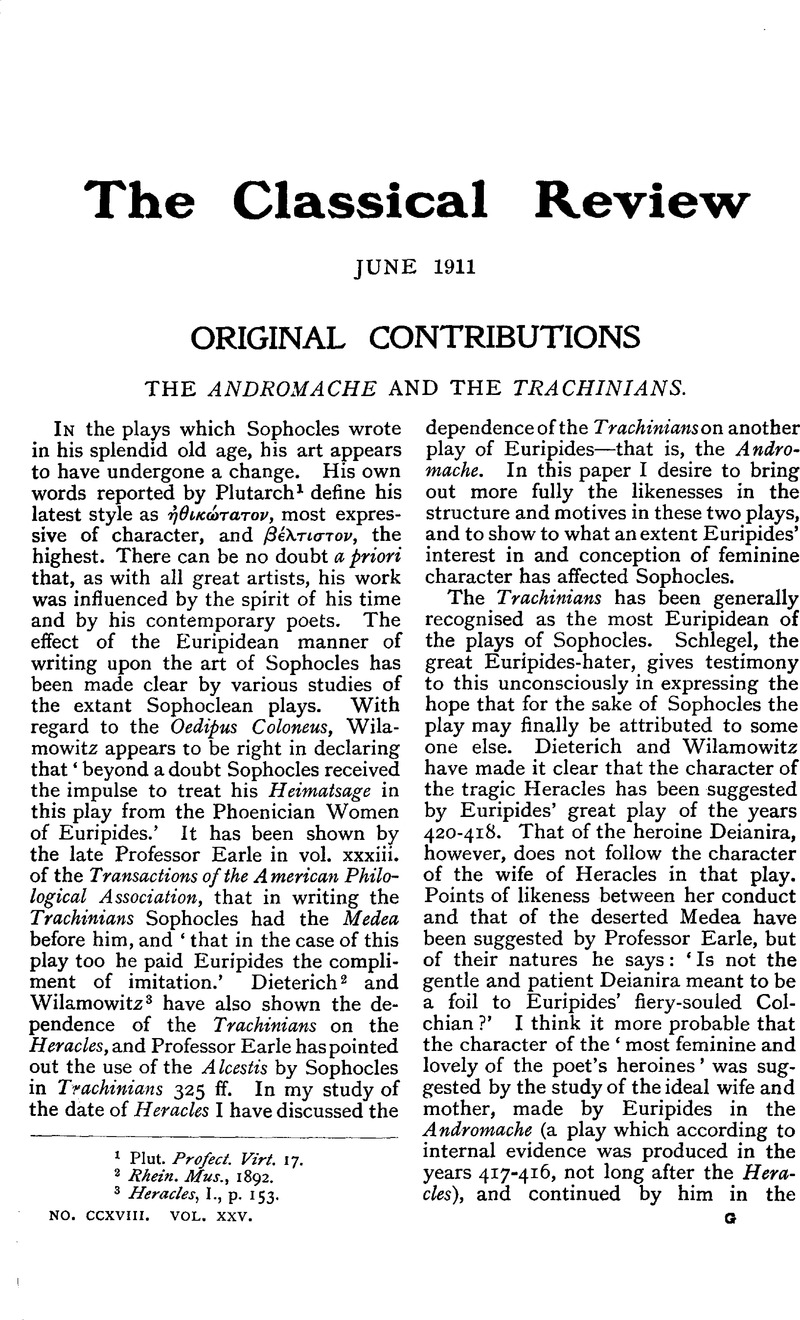No CrossRef data available.
Article contents
The Andromache and the Trachinians
Published online by Cambridge University Press: 27 October 2009
Abstract

- Type
- Original Contributions
- Information
- Copyright
- Copyright © The Classical Association 1911
References
page 97 note 1 Plut. Profect. Virt. 17.
page 97 note 2 Rhein. Mus., 1892.
page 97 note 3 Heracles, I., p. 153.
page 98 note 1 Platt, A., Sophoclea, Classical Quarterly, July, 1910.Google Scholar
page 99 note 1 Euripides and the Spirit of his Drama (Loeb trans.), p. 117.
page 99 note 2 The Trojan Women, p. 88.
page 99 note 3 κατ⋯ Nɛα⋯ρας, 138 C.
page 99 note 4 Men and Manners of Old Florence (Biagi G.), P. 124
page 101 note 1 In its verbal style the Trachinians displays Euripidean traits. The use of λ⋯χος and λ⋯κτρον is noted by Fraccaroli. The words ![]() form a group of compounds appearing in this play alone of Sophocles’ extant plays. Euripides has a liking for this compound; cf. ⋯ρτ⋯δακρυς, Med. 903; ⋯ρτιμαθ⋯ς, Hec. 687;
form a group of compounds appearing in this play alone of Sophocles’ extant plays. Euripides has a liking for this compound; cf. ⋯ρτ⋯δακρυς, Med. 903; ⋯ρτιμαθ⋯ς, Hec. 687; ![]() , Suppl. 742;
, Suppl. 742; ![]() Med. 294; I.A. 877. The compound
Med. 294; I.A. 877. The compound ![]() , Trach. 640, seems to be of great significance in view- of the fact that Sophocles has but two compounds of καλλι-, the other also in a late play (O.C. 682), while Euripides has no less than twenty compounds of this word. Moreover,
, Trach. 640, seems to be of great significance in view- of the fact that Sophocles has but two compounds of καλλι-, the other also in a late play (O.C. 682), while Euripides has no less than twenty compounds of this word. Moreover, ![]() is modelled on
is modelled on ![]() of Heracles 356. This characteristically Euripidean compound is also found in Ion 169 and I.T. 222. The repetitions so frequent in Euripides also appear in this play in considerable numbers.
of Heracles 356. This characteristically Euripidean compound is also found in Ion 169 and I.T. 222. The repetitions so frequent in Euripides also appear in this play in considerable numbers.


